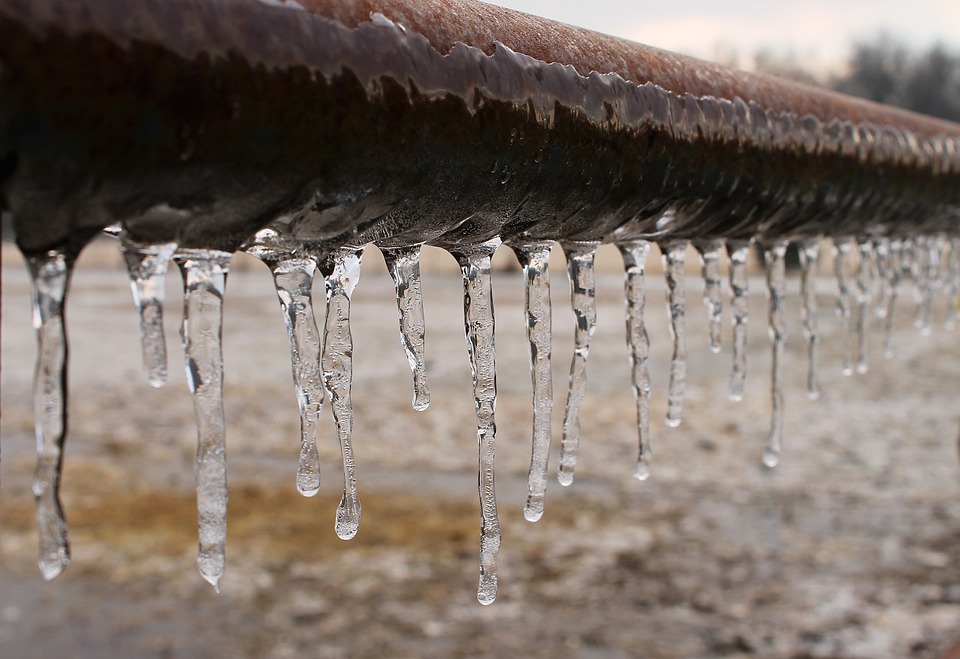Have you been trying to find information around Helpful Tips to Prevent Frozen Pipes this Winter?

Winter can wreak havoc on your pipes, particularly by freezing pipes. Below's how to avoid it from taking place and what to do if it does.
Intro
As temperature levels decrease, the danger of frozen pipes increases, potentially resulting in expensive repair services and water damage. Understanding how to prevent icy pipelines is vital for house owners in cool climates.
Recognizing Frozen Pipes
What creates pipes to ice up?
Pipes ice up when subjected to temperature levels below 32 ° F (0 ° C) for prolonged periods. As water inside the pipes freezes, it increases, putting pressure on the pipe wall surfaces and possibly causing them to rupture.
Threats and damages
Frozen pipelines can result in supply of water disruptions, property damage, and pricey repairs. Burst pipes can flood homes and trigger substantial architectural damages.
Indications of Frozen Piping
Determining frozen pipes early can avoid them from bursting.
Just how to determine icy pipes
Search for reduced water flow from taps, uncommon odors or sounds from pipelines, and visible frost on exposed pipelines.
Prevention Tips
Insulating prone pipes
Cover pipes in insulation sleeves or use warm tape to protect them from freezing temperature levels. Focus on pipes in unheated or outside locations of the home.
Heating techniques
Maintain interior rooms appropriately heated, specifically locations with plumbing. Open up cabinet doors to allow cozy air to flow around pipes under sinks.
Safeguarding Outside Pipes
Yard tubes and outdoor faucets
Detach and drain pipes garden pipes prior to winter months. Install frost-proof spigots or cover outdoor faucets with insulated caps.
What to Do If Your Pipes Freeze
Immediate activities to take
If you suspect frozen pipes, maintain taps open up to soothe pressure as the ice thaws. Make use of a hairdryer or towels soaked in warm water to thaw pipelines slowly.
Long-Term Solutions
Structural changes
Consider rerouting pipelines far from outside walls or unheated areas. Include added insulation to attic rooms, cellars, and crawl spaces.
Upgrading insulation
Invest in top notch insulation for pipelines, attic rooms, and wall surfaces. Correct insulation aids keep regular temperature levels and lowers the threat of icy pipelines.
Verdict
Protecting against icy pipes calls for positive procedures and quick responses. By recognizing the causes, signs, and safety nets, house owners can safeguard their pipes during cold weather.
Helpful Tips to Prevent Frozen Pipes this Winter
UNDERSTANDING THE BASICS: WHY PIPES FREEZE AND WHY IT’S A PROBLEM
Water freezing inside pipes is common during the winter months, but understanding why pipes freeze, and the potential problems it can cause is crucial in preventing such incidents. This section will delve into the basics of why pipes freeze and the associated problems that may arise.
THE SCIENCE BEHIND FROZEN PIPES
When water reaches freezing temperatures, it undergoes a physical transformation and solidifies into ice. This expansion of water as it freezes is the primary reason pipes can burst. As the water inside the pipe freezes, it expands, creating immense pressure on the walls. If the pressure becomes too great, the pipe can crack or rupture, leading to leaks and water damage.
FACTORS THAT CONTRIBUTE TO PIPE FREEZING
- Low Temperatures: Extremely cold weather, especially below freezing, increases the risk of pipes freezing.
- Uninsulated or Poorly Insulated Pipes: Pipes located in unheated areas, such as basements, crawl spaces, or attics, are more prone to freezing. Insufficient insulation or lack of insulation altogether exacerbates the problem.
- Exterior Wall Exposure: Pipes running along exterior walls are susceptible to freezing as they encounter colder temperatures outside.
- Lack of Heating or Temperature Regulation: Inadequate heating or inconsistent temperature control in your home can contribute to frozen pipes.
PROBLEMS CAUSED BY FROZEN PIPES
WHY CERTAIN PIPES ARE MORE PRONE TO FREEZING
- Pipe Bursting: As mentioned earlier, the expansion of water as it freezes can cause pipes to burst, resulting in significant water damage.
- Water Damage: When pipes burst, it can lead to flooding and water damage to your property, including walls, ceilings, flooring, and personal belongings.
- Structural Damage: Prolonged exposure to water from burst pipes can compromise the structural integrity of your home, leading to costly repairs.
- Mold and Mildew Growth: Excess moisture from water damage can create a favorable environment for mold and mildew growth, posing health risks to occupants.
- Disrupted Water Supply: Frozen pipes can also result in a complete or partial loss of water supply until the issue is resolved.
https://busybusy.com/blog/helpful-tips-to-prevent-frozen-pipes-this-winter/
- Location: Pipes located in unheated or poorly insulated areas, such as basements, crawl spaces, attics, or exterior walls, are at higher risk of freezing.
- Exterior Pipes: Outdoor pipes, such as those used for irrigation or exposed plumbing, are particularly vulnerable to freezing as they are directly exposed to the elements.
- Supply Lines: Pipes that carry water from the main water supply into your home, including the main water line, are critical to protect as freezing in these lines can affect your entire plumbing system.
- Underground Pipes: Pipes buried underground, such as those connected to sprinkler systems or outdoor faucets, can be susceptible to freezing if not properly insulated.

I ran across that review about How To Avoid Freezing Pipes while doing a search on the internet. Sharing is nice. One never knows, you may be doing someone a favor. Thanks a lot for your time. Come back soon.
Click Here
Comments on “Avoiding Frozen Plumbing in Winter: Expert Strategies”